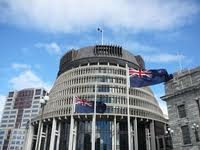ASMS has said clinical governance will be essential to the successful implementation of the health reforms as part of its submission to a parliamentary select committee on the Pae Ora (Healthy Futures) Bill. The legislation sets up the foundations and legal framework for the largest reform of the health system in a generation.
If enacted, the Pae Ora (Healthy Futures) Bill will replace the current New Zealand Health and Disability Act 2000 and result in a major restructuring of the health sector which will take effect on 1 July 2022.
On that date, DHBs will be disestablished and every DHB employee will become an employee of Health New Zealand (HNZ) on the same terms and conditions. This does not include DHB chief executives.
All DHB assets (including public hospitals) will be vested in HNZ and all rights, liabilities, contracts, entitlements, undertakings, and engagements of a DHB will transfer.
HNZ will be the largest employer in the country with a workforce of about 80,000, an annual operating budget of $20 billion and assets worth about $24 billion. It will lead the health system operations, planning, commissioning, and delivery of services working with the new Māori Health Authority (MHA).
Notably one of the objectives of HNZ in the bill is “to promote health and prevent, reduce, and delay ill-health, including by collaborating with other social sector agencies to address the determinants of health”. This is not an objective for DHBs under the current legislation, and one which ASMS considers a positive change.
The bill establishes the MHA as an independent statutory entity to co-commission and plan services with HNZ, commission kaupapa Māori services and monitor the performance of the system for Māori.
The Ministry of Health will continue to be the chief steward of the health system and principal advisor to the Minister with overarching responsibilities for strategy, policy, regulation, and monitoring. A new Public Health Agency will be established as a business unit within the Ministry, bringing together the 12 public health units.
The Minister has established an interim MHA and interim HNZ as departmental agencies within the Ministry and has appointed board members. The boards are currently advising the Minister, including on the structures and leadership teams of the new entities.
An Interim Health Plan, developed by the interim HNZ and interim MHA, will apply when the bill comes into effect next year.
Here are the key points from ASMS’ submission:
- We believe that the health budget must be significantly increased to provide healthcare to meet the needs of all New Zealanders.
- We believe clinical governance will be essential to successful implementation of the reforms and senior doctors need to be able to access appropriate non-clinical time so they can contribute.
- We believe there must be greater focus on building and valuing the health workforce, and greater attention to investing in the public health system infrastructure.
The full submission is here

